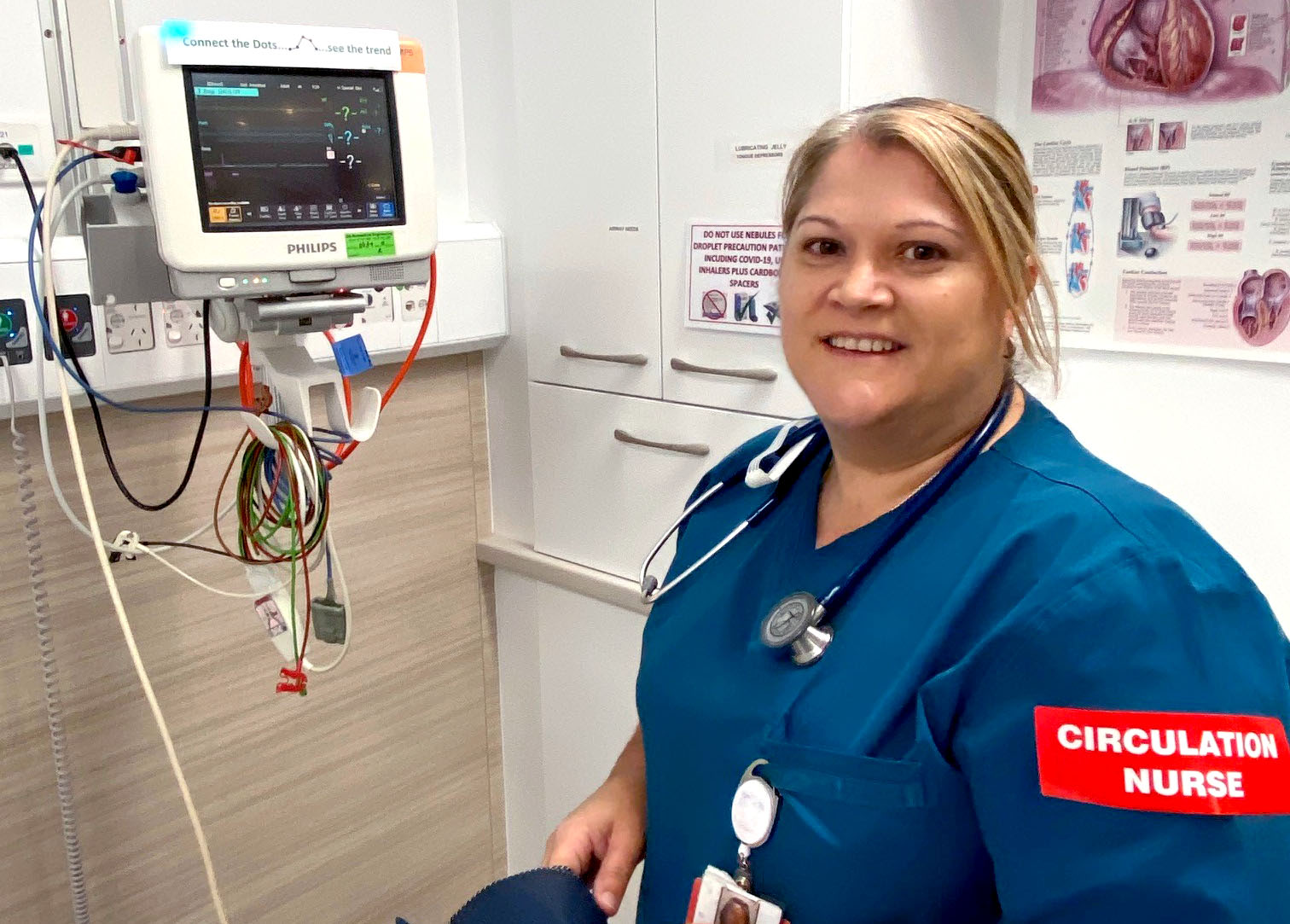
Flinders University academic and emergency nurse Sandra Crockett has been doing the rounds of country hospitals for more than three decades but never in her career has she worked through a situation quite like the COVID-19 pandemic.
With the pandemic impacting communities throughout the world, regional South Australian towns have not been immune to the highly infectious disease, including the Riverland where a 75-year-old local succumbed to the disease in early April.
For Sandra, a registered emergency department nurse at the Riverland General Hospital, the biggest change to her workday has included revamped infection control measures and constantly adjusting to the changing environment, particularly when the state first implemented restrictions.
Like many nurses and health professionals across the globe, Sandra’s role in the current climate is not going unnoticed. Nurses across the world have been affected by the COVID-19 pandemic, particular those who have been lost to the disease and those who continue to stand at the coalface of it to help others.
But helping others is what Sandra lives for. She remembers being a St John’s Ambulance cadet as a child and has since fostered an interest in nursing and caring for people.
‘I like helping people and I get a real satisfaction of seeing a patient come in and us being able to keep them stable, keep them alive before they are transported off to hospital in Adelaide,’ says Sandra, who is also an interprofessional educator at Flinders University Rural Health SA, in both the nursing and Parallel Rural Community Curriculum programs.
‘It’s that satisfaction of having helped somebody.’
Some years ago, Sandra thought she needed a break from the nursing field, so she went off to pursue another occupation. But it didn’t take long – just 12 months – before she was back in the nursing uniform.
‘I came back to nursing very quickly,’ she says. ‘I decided that I really missed helping people. That drive pulled me back.’
Back in the early 1990s, Sandra was among the last of the nurses to be trained at hospital, before higher education facilities stepped up and hospital training was phased out. Her career kicked off at the Whyalla hospital where she would remain for 12 years as a theatre nurse, providing care to patients before, during and after surgery and working alongside the surgical team.
Sandra then moved to the Riverland and took up a position at the Riverland General Hospital in Berri. Over the years, she’s only ever worked in country hospitals, but remote and regional nursing comes with its own challenges and rewards – the broad nature of the role brings greater responsibility and a heightened sense of community connectivity.
From road crashes and farm machinery accidents, to drug and alcohol related issues, and cardiac and respiratory cases – country nurses deal with it all. ‘The thing about being a rural nurse as opposed to a tertiary nurse is that we get exposed to everything rather than having a speciality,’ says Sandra. ‘You have to know a little bit about everything.’

